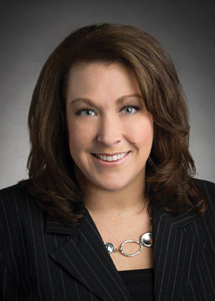Understanding PPACA’s Fees That Impact Employer Sponsored Health Plans
 By Kristi R. Gauthier, Esq.
By Kristi R. Gauthier, Esq.
Clark Hill PLC
August 12, 2013 – As the cost of complying with the Patient Protection and Affordable Care Act (“PPACA”) continues to increase, employers are growing concerned over the number of hidden fees in PPACA and the impact that these fees will have on their bottom line. This article will provide an overview of the three main fees impacting employer sponsored health plans.
• Patient-Centered Outcomes and Research Institute Fee (“PCORI”). The purpose of this fee is to fund medical research that will help to reduce unnecessary health care spending in the United States. The PCORI fee is tax deductible and applies to both fully-insured and self-funded medical plans (not dental or vision plans). For self-funded plans, the plan sponsor is responsible for the fee, whereas for fully-insured plans, the insurance carrier will be responsible for the fee. However, even in the fully-insured context, the plan sponsor will likely still end up paying the fee as insurers are sure to build the fees into their pricing. The PCORI fee will span a seven year period and the cost will be $1 per covered member for the first plan year on or after September 30, 2012, and will increase to $2 per covered member per year for plan years ending after September 30, 2013. (Note: “covered member” includes employees and their dependents, as well as any retirees and COBRA beneficiaries.) Plan sponsors and insurers must file an IRS Form 720 no later than the July 31st of the calendar year immediately following the last day of the plan year to which the fee relates. So, for example, the first PCORI fee payments and Form 720s must be filed no later than July 31, 2013 for the 2012 plan year.
• Transitional Reinsurance Program (“TRP”) Fee. The TRP fee is a three year program beginning in 2014. The purpose of the TRP is to assist in stabilizing premiums for coverage in the individual market during the first three years the new health insurance marketplaces (also known as the state exchanges) are in place by reimbursing insurers that end up covering a large portion of high-cost individuals in the new marketplaces. The TRP fee is a tax deductible fee that will be collected annually by the Department of Health and Human Services (“HHS”) and has currently been set at $63 per covered member. (Note: “covered member” includes the employees and their dependents, as well as COBRA beneficiaries and retirees, unless the retiree coverage is secondary to Medicare.) Like the PCORI fee, this fee also applies to both fully-insured plans and self-funded medical plans (not dental or vision plans). For fully-insured plans, the TRP fee will be paid by the insurer but will likely be built into the rates. For self-funded plans, the plan administrator is responsible for the TRP fee, but may contract with their third-party administrator to remit the fee on their behalf. This fee is assessed on a calendar year basis and beginning in 2014 plan sponsors or insurers will report the number of covered members to HHS by November 15th and HHS will send a bill to the plan sponsor/insurer by December 15th, with payment being due to HHS no later than January 15th.
• Health Insurance Tax (“HIT”). The HIT is an annual fee that will be assessed indefinitely on health insurers beginning in 2014. The purpose of the HIT is to help fund the state and federal health insurance marketplaces. Unlike the two fees mentioned above, the HIT is only applicable to fully-insured plans and must be paid by the insurer. Also, the HIT not only applies to medical plans, but also to dental and vision plans. With that said, it is likely that the cost will be passed on to plan sponsors in the form of higher rates. The HIT will be $8 billion in 2014 (increases each year) which will be divided among health insurance issuers on a pro rata basis based on each issuer’s share of the overall national premium base.
Employers should consult with their legal counsel to fully understand the calculations and reporting requirements associated with each of these fees, especially those employers sponsoring self-funded plans. For those employers with fully-insured plans, the employers should be communicating with their insurance agents to better understand the impact of these fees on health plan rates and pricing.
*This article is not intended to give legal advice. It is comprised of general information. Employers facing specific issues should seek the assistance of legal counsel.
Kristi R. Gauthier is a senior attorney in Clark Hill’s Birmingham office and concentrates her practice in Employee Benefits Law. Kristi has represented clients in a wide variety of employee benefits issues involving health and welfare benefits, as well as retirement plans. Kristi is admitted to practice in the State of Michigan, the U.S. District Court for the Eastern District of Michigan, and the U.S. Sixth Circuit Court of Appeals. She also is active in the legal community with memberships in the American Bar Association, the State Bar of Michigan, and the Oakland County Bar Association where she is a member of the Employee Benefits Committee. Kristi also serves as a member of the Clark Hill Diversity and Inclusion Committee. Kristi has lectured on various employee benefits issues, including ERISA compliance, healthcare reform, COBRA, section 125 plans, 403(b) plans and IRS plan correction programs. Kristi is also a co-author of the ABA publication ERISA Survey of Federal Circuits. Kristi was named a “Rising Star” by Michigan Super Lawyers in 2011.



Leave a Reply
Want to join the discussion?Feel free to contribute!